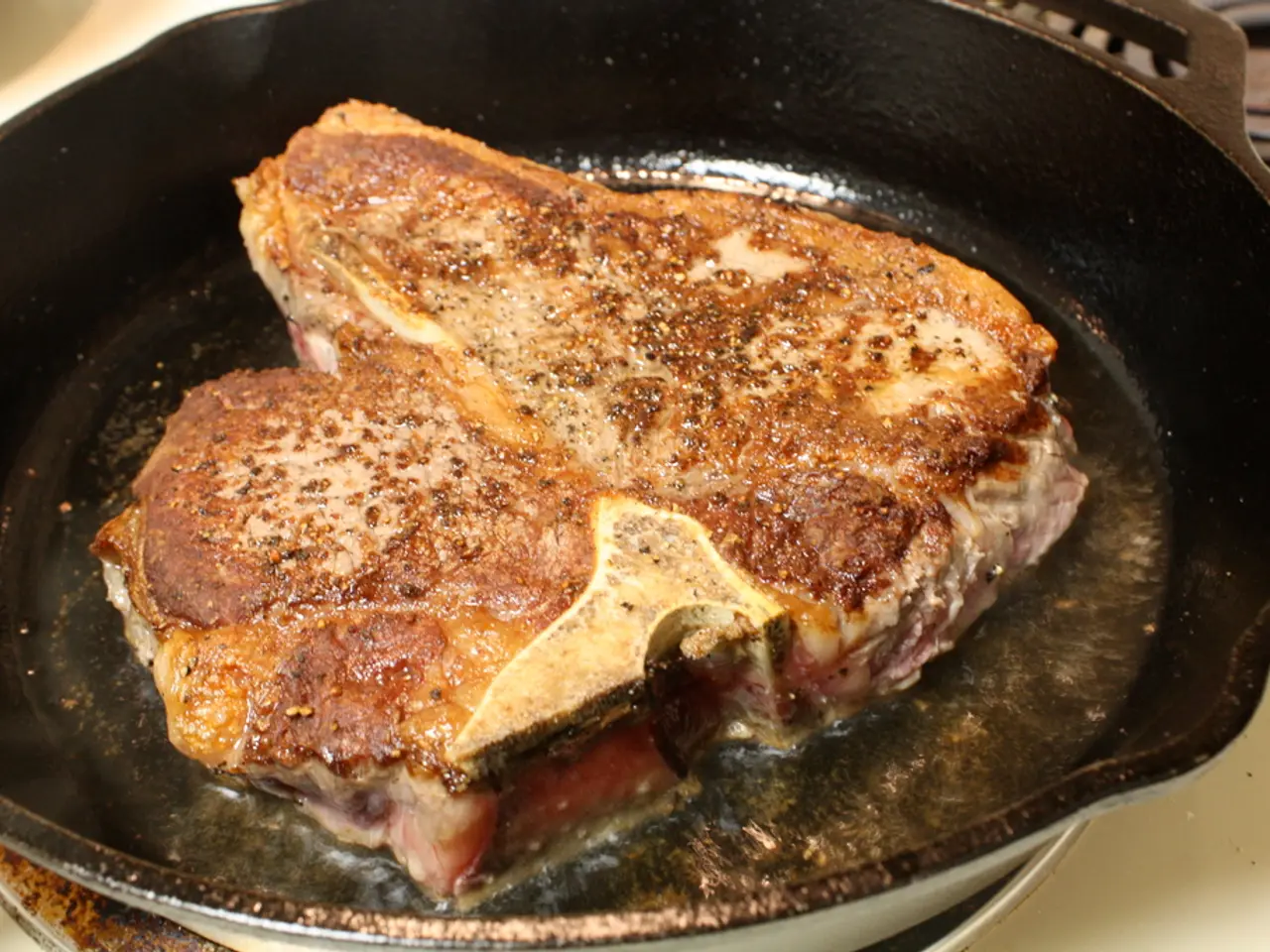Best Oils for Cooking Varieties: Deep-Frying, Shallow-Frying, and Roasting
When it comes to selecting the healthiest cooking oils for deep frying, shallow frying, and roasting, several options stand out due to their nutritional benefits and smoke points. Here's a breakdown of the best choices for each cooking method:
## Deep Frying
Avocado oil, with a high smoke point of 500°F, is ideal for deep frying. Rich in monounsaturated fats and antioxidants, avocado oil is a healthier choice compared to other options like vegetable oil [2][3].
Peanut oil, with a smoke point of 450°F, is another good option for deep frying. It contains monounsaturated fats and is rich in vitamin E, offering heart health benefits. However, it may not be suitable for households with peanut allergies [4].
## Shallow Frying (Sautéing)
Canola oil, with a medium-high smoke point of around 400°F, is suitable for shallow frying. It is low in saturated fats and has a favorable omega-3 to omega-6 ratio, supporting heart health [4].
Olive oil, while not ideal for high-heat frying due to its lower smoke point (around 350-410°F), is great for light sautéing. It is rich in monounsaturated fats and antioxidants, providing numerous health benefits [1][3].
## Roasting
Olive oil is a good choice for roasting due to its rich flavor and health benefits. It can be used at lower temperatures, and its antioxidant properties help protect against oxidative damage during cooking [3].
Avocado oil, with a high smoke point, is also suitable for roasting. It adds a mild flavor and is rich in monounsaturated fats, which are beneficial for heart health [2][3].
It's essential to remember that oils reach their smoking point once they start to smoke and break down. Oils with high smoke points may be more stable and healthful to cook with than those with low smoke points.
When it comes to unheated uses, such as drizzling over food or using in dressings, polyunsaturated oils like flaxseed oil are best. However, flaxseed oil oxidizes easily and should be kept in a dark, airtight container in the fridge.
Trans fats, found in processed foods and commercially deep-fried foods cooked in partially hydrogenated oils, should be avoided as they increase the risk of health conditions such as heart disease, diabetes, and stroke.
In conclusion, making informed choices about cooking oils can significantly impact your health. By choosing oils with high smoke points for deep frying, shallow frying, and roasting, and using unheated oils for drizzling, you can enjoy delicious meals while minimizing potential health risks.
- A healthy lifestyle often includes adopting a diet rich in monounsaturated fats, such as those found in avocado oil and olive oil.
- Despite the benefits of avocado oil, households with peanut allergies should consider other options for deep frying, such as canola oil.
- Scientists have found that heart health benefits can be gained from oils rich in vitamin E, like peanut oil.
- Shallow frying can be healthier with the use of oils like canola oil, which has a favorable omega-3 to omega-6 ratio.
- Foodandfoodbenefits warn that individuals should avoid trans fats, often found in processed foods, as they can lead to health issues like heart disease, diabetes, and stroke.
- Alzheimer's, depression, or hepatitis might not be predictive of one's choice of cooking oil; however, a healthy diet is essential for overall health-and-wellness.
- Ulcerative colitis and diabetes management may require a focus on nutrition and a healthy-diets, but specific oils do not appear to have a direct link with these conditions.
- A healthy lifestyle encompasses not only nutrition but also a fitness-and-exercise regimen and a balanced food-and-drink intake.
- Cooking techniques are an important part of healthy eating, as every oil exhibits different benefits when used for deep frying, shallow frying, or roasting.
- Obesity can be linked to an unhealthy diet and lack of exercise, but selecting the right cooking oils can provide one with some support in maintaining a healthier lifestyle.
- When you're cooking for dinner tonight, consider incorporating a healthy-diets principle by choosing cooking oils with high smoke points and keeping your lifestyle balanced with proper nutrition, exercise, and enjoyable food-and-drink experiences.





